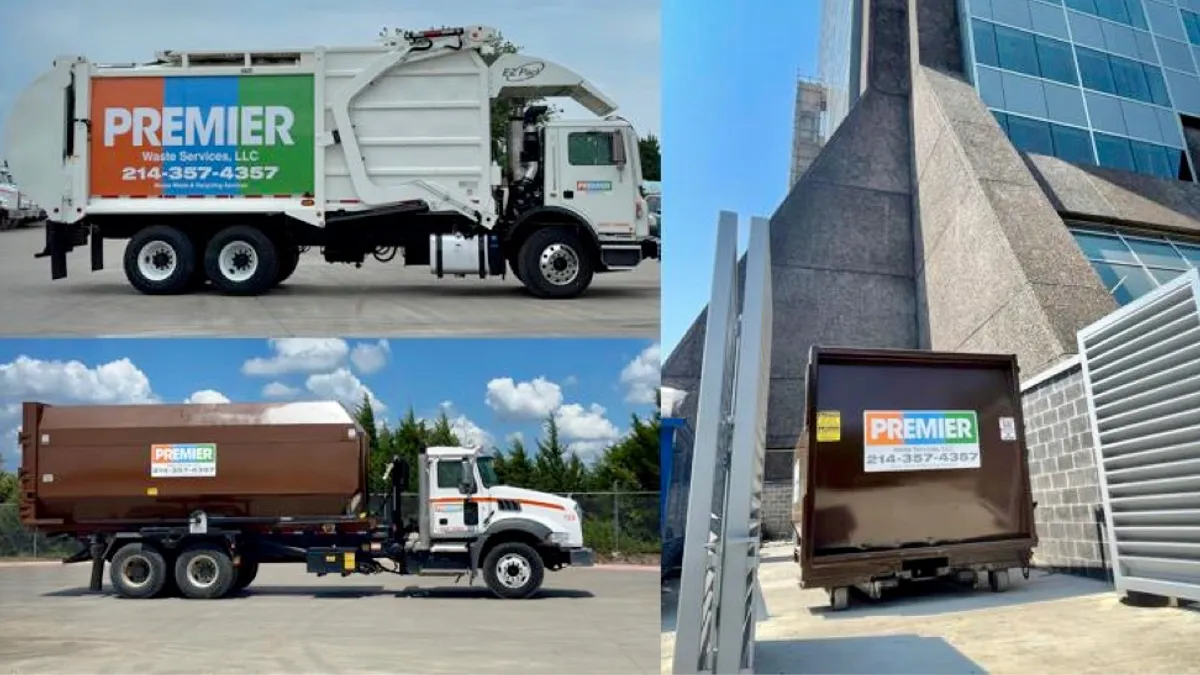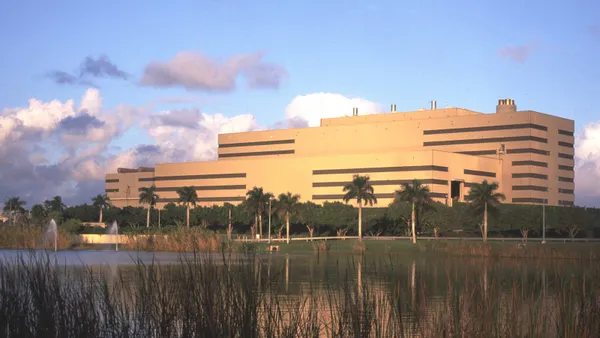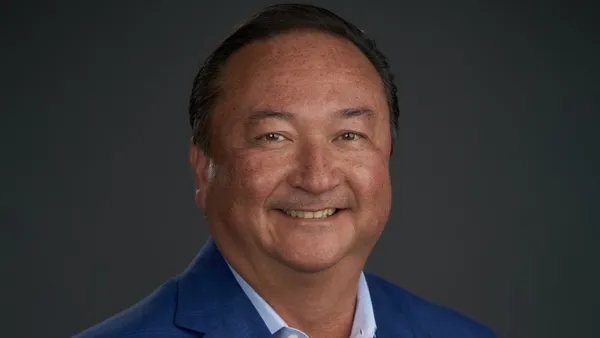Dive Brief:
- FCC Environmental Services, the U.S. division of a Spain-based company, announced this week it acquired Texas-based Premier Waste Services in December — its first deal since entering the U.S. waste market.
- Premier serves an estimated 4,000 accounts in the Dallas-Fort Worth metro area with a fleet of more than 50 vehicles. The purchase price was $34 million.
- “This growth is a key driver for our company as we continue to expand our U.S. presence and work to
synergize our operations. Thus far, all of our growth has been organically driven and we are excited about this further lever to grow our company and embrace proven service providers like Premier," said CEO Inigo Sanz in a statement.
Dive Insight:
FCC, which won its first U.S. solid waste contract in Florida in 2015, discussed plans to start growing faster through acquisitions as early as 2019. While the pandemic and other factors delayed that activity, Sanz reiterated this goal in an interview Thursday.
“We're looking forward to making many more [acquisitions] in any other of our locations, or maybe even in any location where we are not present today, if it makes sense," he said. “Our company is definitely looking forward to growing faster. We believe that we need to get a higher position in the U.S. market."
The Houston-based operation is part of the multinational FCC Group, which has been operating for more than 100 years and has a range of businesses in environmental services, water, construction and other sectors across dozens of countries. FCC Group reported consolidated 2021 revenues of nearly 6.66 billion euros this week, with close to half of its earnings coming from environmental services.
Sanz said the company's U.S. division is on track to potentially reach $300 million in revenue this year, up from an annual revenue projection of $100 million in 2019, as it sees continued growth. U.S. operations now comprise an estimated 1,000 employees and 600 trucks across three states — Texas, Florida and Nebraska — with the potential for more to come.
After winning municipal contracts, FCC built new MRFs in Dallas and Houston and aims to further expand in Texas. Sanz said a goal is to grow the company's commercial business in all of its markets. The Premier acquisition will help densify its routes and also bring in more recyclable materials around the Dallas-Fort Worth metro area.
Other recent developments include the start of a large contract to serve one of three collection zones in Hillsborough County, Florida, worth at least $280 million when factoring in potential contract extensions. The company also announced it recently won a contract in Wellington, Florida. When factoring in potential extensions of all of its U.S. waste contracts, FCC estimates a potential "backlog" worth more than $3 billion.
Another potential contract that could be decided in FCC's favor soon is a mixed waste MRF and landfill operating arrangement in Placer County, California. Competition for that contract with locally-based GreenWaste recently prompted much debate over FCC's regional organics recycling experience. Sanz compared that market to his company's work in Europe and said "we feel very comfortable bidding for these kinds of projects."
FCC had also been pursuing a collection contract in Jackson, Mississippi, but the city now appears to be going with another hauler after many months of contentious debate among local officials.
Like others in the sector, FCC has grappled with a lack of staffing availability lately. After weeks of service challenges in Polk County, Florida, the local government recently decided to suspend curbside recycling through early April so FCC can catch up.
Speaking broadly, Sanz said staffing remains a focus and highlighted how his company has a "very different approach" from other potential acquirers that may look to reduce head count during deal integrations.
"We need the people. We need the contracts. We need the assets. We need the business that they have," he said of the company's acquisition strategy.
If FCC ramps up acquisition activity as projected, it will further add to the list of potential buyers currently in the market. The industry's publicly-traded solid waste companies closed 2021 with more than $4 billion in M&A spending across the U.S. and Canada. Multiple other private companies, including some with equity backing, are also actively looking to grow through acquisitions.















